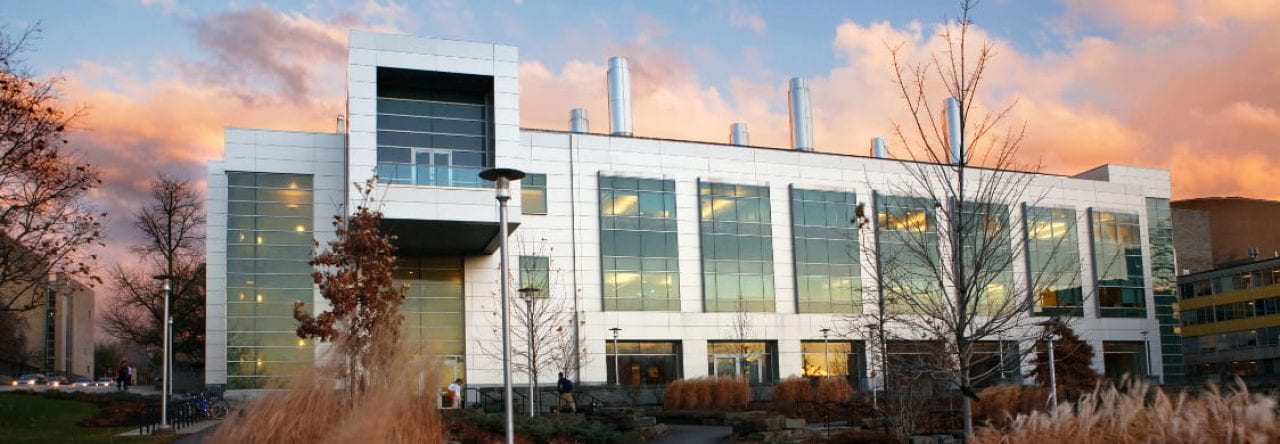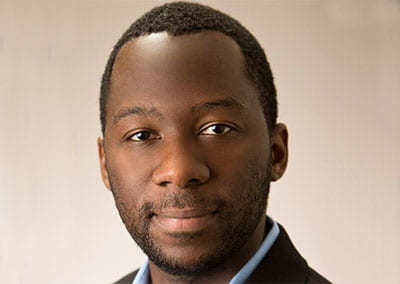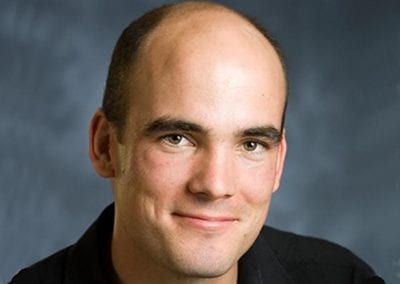Undergraduate Degree Program for the Robert Frederick Smith School of Chemical and Biomolecular Engineering
As a chemical engineer, you can be involved in producing all kinds of goods, from plastics, textiles, and fertilizers, to processed foods and antibiotics. Chemical engineers work in new areas of biotechnology, including designing new methods to fight life-threatening diseases and more effective ways to deliver medications. Our graduates have found career opportunities in government agencies, research laboratories, and academic institutions, and many advance to positions of considerable technical and managerial responsibility.
Cornell’s undergraduate program in Chemical Engineering (ChemE) offers a sequence of courses beginning in your sophomore year and extending through your senior year. The fundamental analytic tools of chemical engineering—chemical kinetics, chemical thermodynamics, and fluid mechanics—are developed in the second and third years. These tools are used to analyze the units of chemical processes: chemical reactors, bio-reactors, distillation columns, and heat exchangers. As a senior, students design chemical processes by integrating process units with attention to economics, safety, and environmental impact. Concentrations in biomolecular engineering, polymeric materials, and energy are available.
Outcomes
Chemical engineers are trailblazers who continuously apply research insights to produce goods, processes, and systems. As a graduate of the Smith School, you’ll be among a group of engineers committed to solving some of the world’s most pressing challenges from producing textiles and plastics to developing methods for pharmaceutical products. Chemical engineers are involved in producing all kinds of goods, from plastics, textiles, and fertilizers, to processed foods and antibiotics. Chemical engineers also work in new areas of biotechnology, including designing new methods to fight life-threatening diseases and more effective ways to deliver medications. Chemical engineers are in demand in many fields, including, petroleum, chemical, pharmaceutical, electronics, consumer-products, and food-processing industries. Many find professional opportunities in government agencies, research laboratories, and academic institutions, and a good number rise to positions of considerable technical and managerial responsibility.
Master of Engineering Degree Program
The Master of Engineering (M.Eng.) degree at Cornell’s Robert Frederick Smith School of Chemical and Biomolecular Engineering, enables new as well as practicing, engineers to earn professional degrees while building expertise in related fields. The diverse personal and academic backgrounds of our faculty and students, and Cornell’s vast facilities, make this an exceptional program in which to pursue one of the following areas of specialization:
- computational informatics;
- energy economics and engineering;
- medical and industrial biotechnology;
- product design
This professional degree gives you the opportunity to:
- gain specialized focused knowledge in areas central to chemical engineering; deepen your knowledge of one topical area related to chemical engineering by specializing in an area of study, such as polymers, electronic materials, engineering management, food engineering, etc.;
- broaden your skills (e.g., take courses in finance, marketing, language proficiency, entrepreneurship, etc.);
- undertake original research in one of the faculty research programs.
Some Areas of Faculty Research
- battery power, storage, and transmission
- biochemistry and biophysics of biological systems
- biological network fragility
- biomass conversionbiomedical research and biotechnology
- energy harvesting efficiency of solar cells using photonic crystals
- geothermal science
- interfacial science
- material properties in nanofibers
- photonic materials and solar energy capture
- polymer rheology
- protein conformational studies
- soft matter
- surface science of organic and inorganic materials
- synthetic biology
- systems biology
- transport in complex fluids
Chemical Engineering by the Numbers
Number of Chemical Engineering undergraduate students: 153
Starting salaries of B.S. Chemical Engineering graduates (for 2021):
- Median salary: $75,000
- High salary: $90,000
Post-graduate plans for chemical engineering graduates at the time of graduation (2021):
- Employed 70%
- Attending Graduate School 23%
- Seeking Admission to Graduate School 5%
- Seeking Employment 2%


























